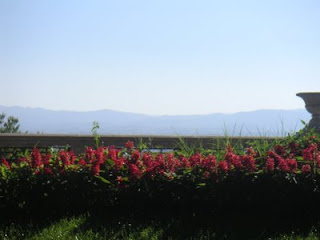When I first started going to Nassau, telling the kids, "We love you; see you in a year" seemed a little flat, but it was all I had and so in my quivering heart, I let it be enough. I shrank back from the overwhelming need because there wasn't space in my heart yet, space carved out by the years and the gut-wrenching stories and the deepening of friendships, for anything more. But as the trips and the years have gone by those words taste sickening coming out of my mouth. They are bile on a hot Bahamian day. I can no longer say them.
"See you next year...."
When I'll bring you a few measly snack crackers and teach you a Bible story.
When I'll come knock on your door to play for a few hours, carry you on my shoulders.
How insufficient in the face of death and rape and hunger and deportations that rip apart families.
How insufficient when my big brother, Jesus, left his perfect Home to drag me out of my brokenness. When he came to our impoverished neighborhood and paid the debt to give me a new inheritance.
How can I claim him and do nothing in the face of the brokenness I see in the little Haitian slum in Nassau?
No, these friends have become too dear only to say "See you next year." Now I know their names, one by one. I have listened to their stories. I have been asked to take them home with me. I have seen their hell, and it demands a more valiant response. I may be small, but I have power and wealth beyond what they can dream. And I walk with a Big God.
My God says that He is near to the brokenhearted (Psalm 34:18). That He rescues the oppressed (Psalm 103:6).
When I used to read these verses in Scripture, I don't think I understood. Not really, not in any way that mattered. I never lost sleep over whether my little friends had enough to eat, or wondering if the Bahamian government had made them orphans.
But as my heart has been enlarged little by little through their suffering, I think I am finally beginning to see. Jesus knows firsthand what it feels like to be broken, oppressed. He has absorbed the smack of cursing words spoken to a foreigner; he knows how it smarts to be rejected and despised. He has borne for us the sting of death, has become an orphan on our behalf.
It's a profound mystery that they know Him in a way foreign to me--I with all my theology and books and lofty ideas. I am spiritually obese, feasting on the rich things of God with all too little action. He nourishes them day by day in a way they probably do not understand, but they expend every ounce, every droplet of His nearness for their survival in a harsh world. As they share their food with one another, take care of the little babies, dream of a better future, they display His nearness.
So how can I be near to Him without drawing near to these little ones He holds so dear? These precious gems with whom he willingly identified? His Word is clear: to be made like him I must become like the least.
That directive seems hazy in a twenty-first century world, especially one in which I have such tremendous resources. How obscure that Jesus would invite me to make myself small! As I write this, I am enjoying the little luxuries of diving and rest and fish tacos and rum punch on an island not so very far from Nassau. These are good gifts from God to rejuvenate a weary soul, not to be disdained or ashamed of. But when I let them cloud my vision and cheer my heart to the point there is no room for the suffering of the poor, I have taken giant steps away from Jesus.
















